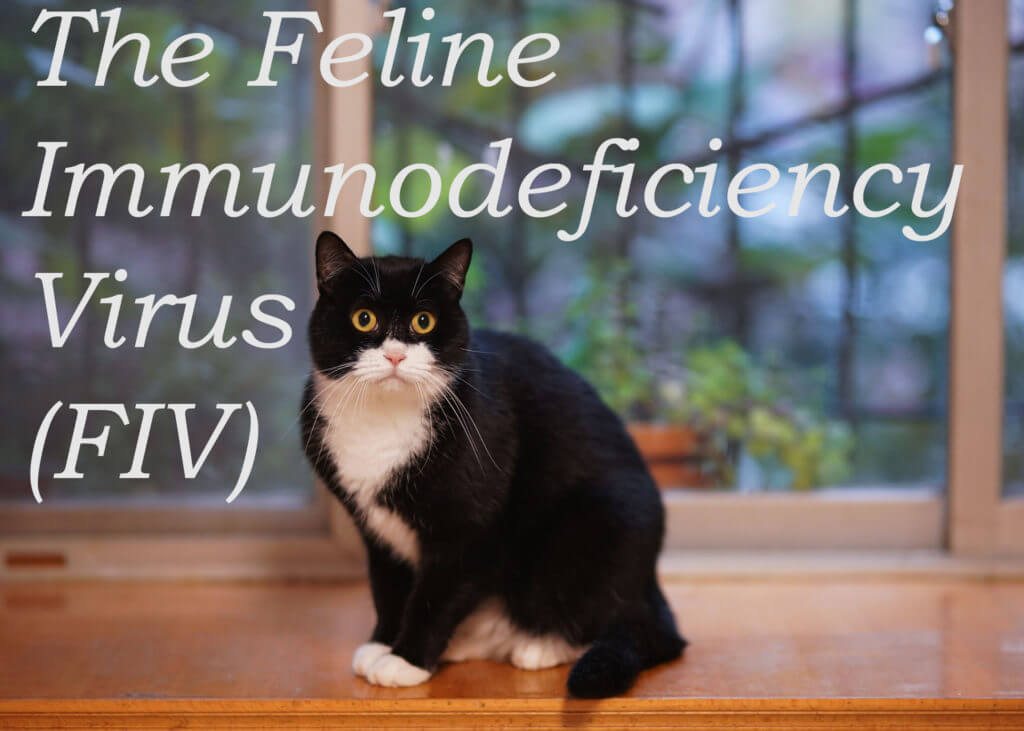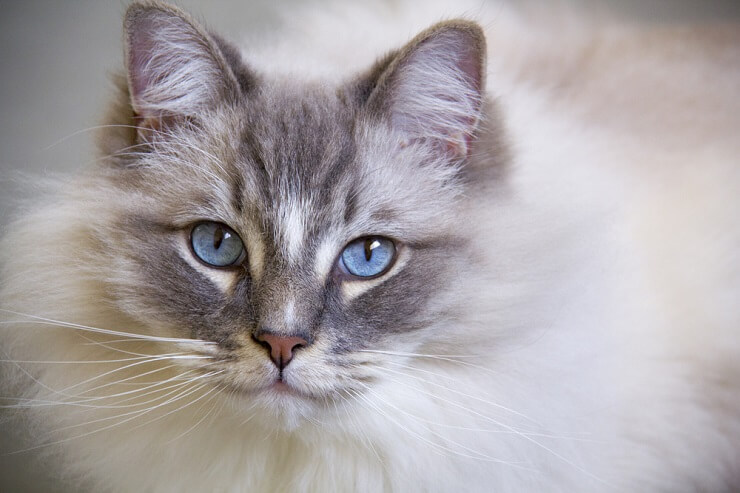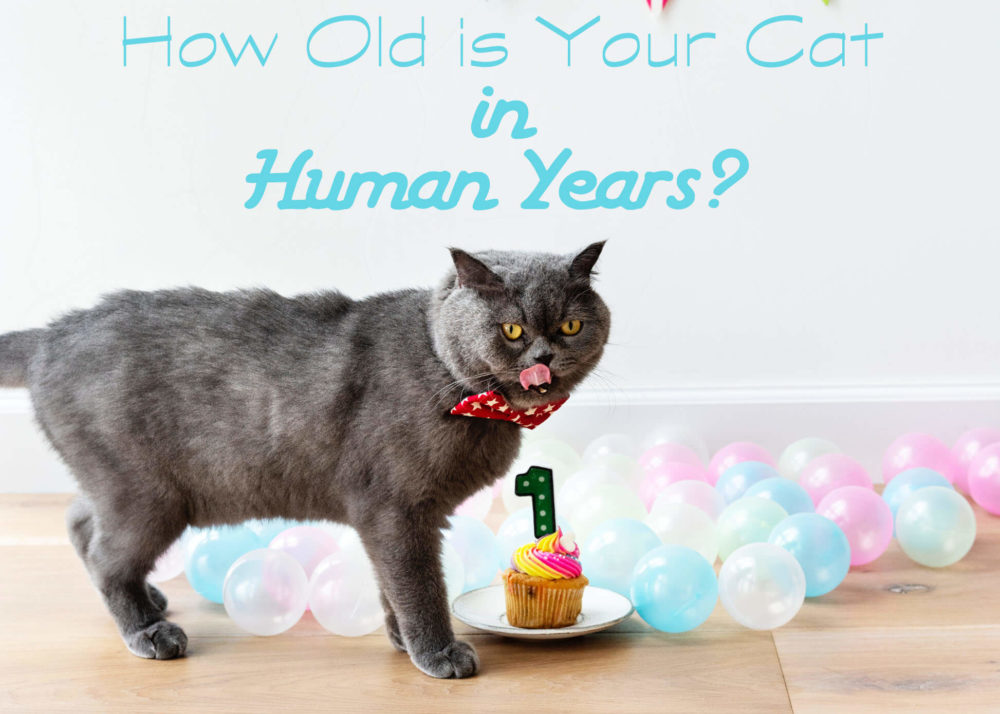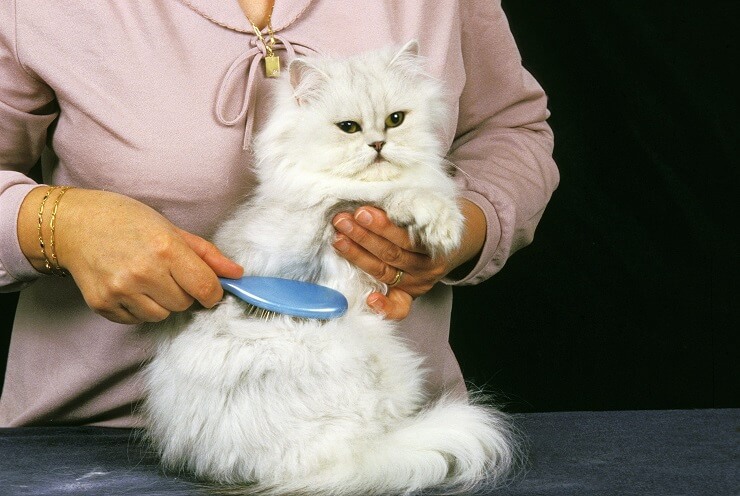FIV : The Feline Immunodeficiency Virus
This page contains affiliate links. We may earn money or products from the companies mentioned in this post through our independently chosen links, which earn us a commission. Learn More

Like HIV, FIV is classified as a lentivirus. It stays in the cat’s body for many years before clinical disease occurs. This means that like the condition in humans, cats can be FIV positive but not necessarily have AIDS (the actual disease causing illness) for many years. While FIV is similar to leukemia infection (FeLV) in cats, FeLV usually causes death in most cats due to overwhelming disease within 3 years of diagnosis.
How Is FIV Spread?
FIV infected cats are found around the world and in the United States, approximately 1.5 to 3% of healthy, normal domestic cats are infected with FIV. In sick cats, approximately 10-15% of tested cats are FIV positive. Usually FIV affects free roaming male cats, as the virus is transmitted primarily through bite wounds. Outdoor cats are at the highest risk of disease, especially if they fight with other cats. Rarely, FIV is transmitted from an infected mother cat to her kittens during pregnancy or nursing. Unlike in people, sexual contact does not seem to be a primary means of spreading FIV.
How Long Will It Take To Show Symptoms?
Following initial infection, the virus goes to regional lymph nodes. It may cause mild illness such as fever, lymph node enlargement at this time. After initial infection, the virus stays quiet in the body for many years, until it flares up and causes clinical signs and disease. Eventually, signs of a suppressed immune system develop, and infections with bacteria, viruses, protozoa, and fungi can cause severe illness. Signs and even death arise as a result of these secondary infections. The average length of time between becoming infected, and the start of symptoms related to the virus, is 7 years but may be as long as 10 years, or even as little as less than a year.
Signs
Signs of FIV in cats is varied and can include: poor coat, persistent fever, weight loss, diarrhea, loss of appetite, swollen lymph nodes, seizures, dental problems (inflammation of the teeth and gums) and chronic infections of the skin, urinary tract, bladder, and respiratory system. Severe wasting of the body can occur late in the disease process. FIV infected cats have an increased risk of developing cancer.
Diagnosis
Diagnosis of FIV is based on the history, clinical signs, and results of an FIV antibody blood test. A positive test results indicates that a cat is infected with FIV (usually for life) and can transmit the virus to other cats. False–positive test results can occur and the test should be repeated in 8 to 12 weeks, especially if the test was done on a normal cat or kitten as part of a general health screening. It’s important for kitten owners to know that young kittens may have positive test results for 12 to 16 weeks after birth, without actually being infected with FIV, due to antibodies obtained from their mothers. Kittens with positive antibody tests should be retested when they are 6 to 8 months.
A negative test result indicates that antibodies against FIV are not present, and usually this means that the cat is not infected. However, since it takes 8 to 12 weeks after infection before detectable levels of antibody appear, it is possible that a cat will have a negative test even if infected with the FIV virus. If FIV is suspected, the cat should be retested in 8-12 weeks.
Treatment
There is no cure for FIV infection in cats. Antibiotics and anti-fungal drugs are used when infections are present, https://www.pittsburgheyeassociates.com/amoxil-treat-infections/. Treatments such as IV fluids, blood transfusions, and forced-feeding of cats that are not eating, is often needed for the critically ill. Corticosteroids may be used for cats with gingivitis/stomatitis and frequent dental cleanings are often needed as well. Drugs used to assist people with AIDS are not usually used in cats due to the costs of the medicines and the frequency of toxic side effects. Herbs, homeopathic, and supplements may be useful in some sick cats. Some useful supplements to consider include Arabinogalactan Powder and Vetri-DMG by VetriScience.
Prevention
FIV is easily prevented by keeping your cats indoors to prevent exposure to the virus. You should vaccinate your cat against the virus, and protect your cat from coming into contact with cats that are FIV positive. You will also want to quarantine and test new cats that are coming into your household until you are sure that they are free of the virus. Some cats will test positive for FIV if they are carriers, although they may never have symptoms of the virus, and cats that have been vaccinated against the virus will test positive for it even though they do not carry it.
According to the American Association of Feline Practitioners, “The absence of tests that distinguish cats vaccinated with Fel-O-Vax® FIV from infected cats, coupled with questions regarding the vaccine’s ability to induce protection against all the sub-types and strains of FIV to which cats might be exposed, makes the decision to recommend use of this product far from straightforward. It is crucial that clients are adequately informed about the vaccine’s impact on future test results, and their decision should be reached only after careful consideration of both positive and negative implications. If the decision ultimately falls in favor of vaccination, cats should test negative immediately prior to receiving Fel-O-Vax® FIV.”
When Should Cats Be Tested For FIV?
- If the cat has never been tested before
- If the cat is sick, even if the cat has tested negative in the past, if exposure can’t be ruled out
- When the cat is adopted, regardless of whether there are or aren’t any other cats in the household
- If the cat has recently been exposed to an infected cat
- If the cat has recently been exposed to a cat of unknown status
- If you’re considering vaccinating the cat against FIV
Conclusion
You should discuss FIV with your veterinarian, as well as have your cat tested and vaccinated. With proper care, FIV infected cats can live many years, and in fact may die from disorders common to elderly cats and not from illnesses related to their FIV infection. Quality of life for FIV positive cats is generally very good.



